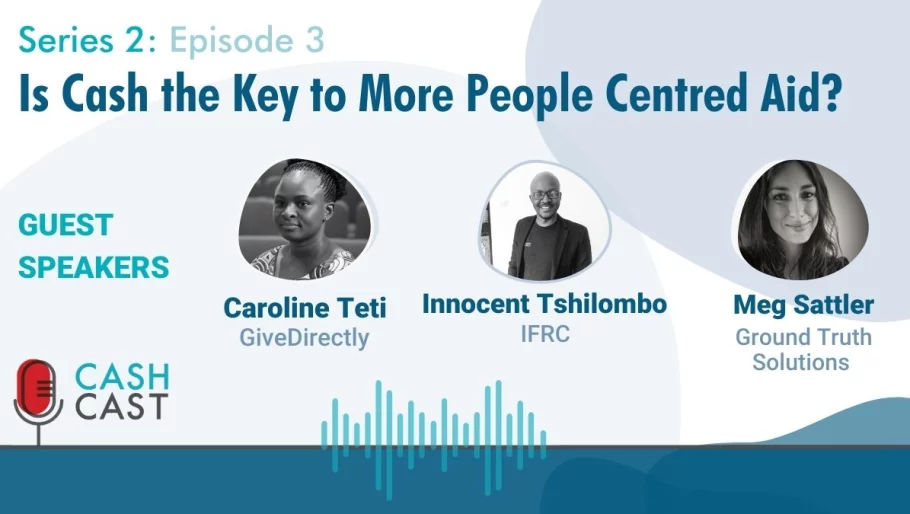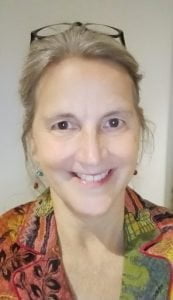Is Cash the Key to More People Centred Aid?

The term people-centred aid is seemingly self-explanatory, designing and delivering aid assistance based on people’s needs. However, as discussed in the second episode of this series of CashCast, there is a gap between what people need and what they are receiving from the humanitarian system.
In this episode, our three guests Caroline, Innocent, and Meg, explore in depth what does people centred aid look like in practice, especially, when delivered as cash, how can we know if it’s being done well? And what makes it different from other similar initiatives in the past? Have we been here before?
“Are we committed to making sure that the design, delivery, and monitoring plus impact of our programmes are actually people centred? Or are we just changing one word for another and starting from where we had left years back?” Caroline Teti
“No matter the size or the urgency, there’s nothing urgent, like preserving the dignity of people. We can’t just walk over dignity because we want to rush something that in the end will turn back to us and even to the community”. Innocent Tshilombo
“If there’s one finding that is probably the most common to everything across Ground Truth, that people sort of really feel that what they need and want is something that will enable them to be able to think more about their tomorrows.” Meg Sattler
CashCast is an occasional podcast from the CALP Network that looks in depth at the critical debates in humanitarian cash and voucher assistance (CVA).
Host

Karen Peachey
Karen joined CALP in early 2017 and became the Director in April 2018. She has worked in both development and humanitarian contexts since the 1990s. Among many other things, Karen has a keen interest in networks, the power of collective action, and how systems change happens.
Guests
Caroline Teti
Caroline is the Global Director of Recipient Advocacy at GiveDirectly. She is a social scientist trained in Development Communications, Gender, and Human Rights with 20 years of experience working for non-profits in Africa.

Innocent Tshilombo
Innocent is a humanitarian whose experience as a refugee has strongly informed his perspectives. He is the founder of Kakuma Ventures in the camp and in 2020/2021 he pursued his Master’s in humanitarian action at the Geneva Centre of Humanitarian Studies.

Meg Sattler
Meg is a Humanitarian Aid consultant specialising in Accountability to Affected Populations. Currently the Director at, Ground Truth Solutions, she has also held senior roles with OCHA, UNICEF, the Start and CDAC Networks and the UN World Food Programme.



